Iran embassy rejects Telegraph report on enrichment rollback
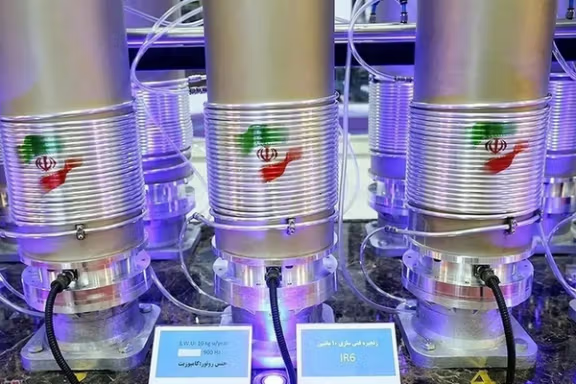
Iran’s embassy in London on Wednesday rejected a British media report saying Tehran was prepared to scale back uranium enrichment.

Iran’s embassy in London on Wednesday rejected a British media report saying Tehran was prepared to scale back uranium enrichment.
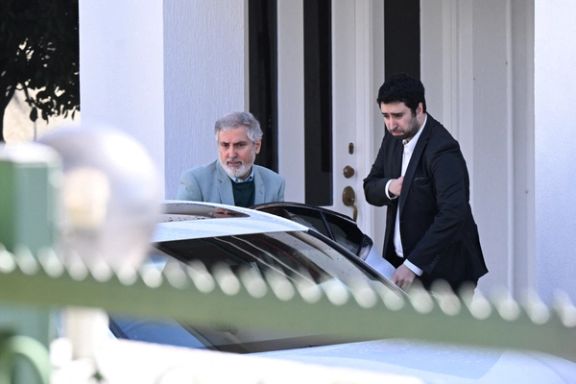
Iran should retaliate against Britain following Australia’s expulsion of Iranian diplomats, the hardline Iranian newspaper Kayhan said on Wednesday in a commentary that linked the Australian action to British influence.
The hardline daily Kayhan said Australia is tied to Britain through the monarchy and, Britain should be held responsible. “When a dog bites someone, the owner is punished,” the piece said, comparing Canberra’s actions to those of a subordinate power.
The column described Australia’s decision as a move to “please the Zionist regime” following “massive protests by hundreds of thousands of Australians against genocide and the crimes of the Zionist regime,” and called it “a show to cover up pressure from the people.”
Australia accuses Iran of directing attacks on Jewish sites
Prime Minister Anthony Albanese said on Tuesday that Iran’s Revolutionary Guards orchestrated two arson attacks in 2024, one at the Adass Israel Synagogue in Melbourne and another at the Lewis Continental Kitchen, a kosher restaurant in Sydney.
“These were extraordinary and dangerous acts of aggression orchestrated by a foreign nation on Australian soil,” Albanese said.
He added that Iran’s ambassador and three diplomats had been ordered to leave the country, and that Australia’s embassy in Tehran had suspended operations. It was the first expulsion of a foreign envoy by Canberra since World War II.
Tehran rejects charges, says Canberra is scapegoating
Foreign Minister Abbas Araghchi denied the allegations and said Iran was being punished for public support for Palestine. “Iran is paying the price for the Australian people’s support for Palestine,” he said on social media.
Araghchi said it made “zero sense” to accuse Iran of attacking Jewish sites abroad while it protects synagogues at home, and repeated criticism of Albanese. Quoting Israeli Prime Minister Benjamin Netanyahu, he wrote, “I am not in the habit of joining causes with wanted war criminals, but Netanyahu is right about one thing: Australia's PM is indeed a weak politician.”
Netanyahu says pressure worked, Australia denies link
Netanyahu’s spokesperson said the Israeli prime minister’s criticism of Australia’s recognition of Palestinian statehood may have pushed Canberra to act. “It’s welcome that after the prime minister’s intervention, these actions were taken,” the spokesperson said.
Australian Home Affairs Minister Tony Burke rejected that claim. “Complete nonsense,” he said. “There was not a minute between us receiving this assessment and working through our response.”
Court hears case tied to Melbourne synagogue fire
A 20-year-old man appeared in court in Melbourne on Wednesday in connection with the synagogue fire that caused millions of dollars in damage and destroyed sacred texts. Two other suspects have also been charged.
Burke said the individuals were unlikely to have known they were acting under Iranian direction, but added that this did not diminish the seriousness of the case.
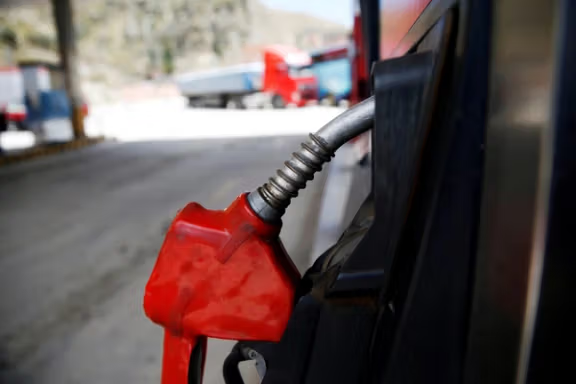
Iranian authorities are hinting at an imminent gasoline price hike in a risky move after a fuel price rise in 2019 sparked nationwide protests which were quashed with deadly force.
"The government has decided to increase the price of unleaded gasoline, which is primarily used by luxury vehicles," Mohsen Hajimirzaei, chief of staff to President Masoud Pezeshkian, said on Monday night.
Hajimirzaei added that the decision was delayed to address concerns about its impact on those whose livelihoods depend on unleaded fuel, in a likely reference to taxi drivers.
"To eliminate worries over the price hike’s effect on vulnerable groups, the decision took considerable time."
Price increases tend to make other fuel types more costly, economic analysts speaking to Iranian state TV and Persian-language outlets abroad said, adding that they also generally drive up the cost of goods and services.
Previously, President Pezeshkian had proposed reducing the gasoline quota for low-income households while capping allocations for wealthier families.
Typically, fuel price increases are accompanied by a quota system for subsidized gasoline, where consumption beyond that quota is charged at higher rates.
Defending the move, Hajimirzaei said government subsidies could no longer be justified.
"We decided to import unleaded gasoline at a cost of $3.5 billion. It cannot be sold cheaply. Owners of new luxury cars will have to pay international prices," he told the Iranian Students' News Agency
Hundreds killed in 2019
The memory of November 2019 looms large, when a gasoline price hike sparked protests in over 110 cities and attacks by security forces on demonstrators claimed hundreds of lives.
Although that decision had been jointly made by the heads of the executive, legislative and judiciary branches, none accepted responsibility once unrest erupted.
Several Iranian outlets, including the reformist Rouydad24, warned on Tuesday that the unleaded gasoline price hike could fuel inflation and intensify financial pressure on middle- and lower-income groups. Serious unrest could recur, the outlet warned.
At the same time, serious challenges abroad further darkened the outlook.
Parliament speaker Mohammad Bagher Ghalibaf warned on Tuesday that Iran would abandon military restraint and open new battlefronts if war with Israel reignites.
"In the next possible war, our restraint will end," he declared in parliament, adding that "New geographic areas and targets will be added to our response. And if the enemy overreaches again, the war could expand into economic and political arenas as well."
This statement strongly suggests that Iran may target shipping lanes in the Persian Gulf and strike neighboring countries—reminiscent of its actions during the 1980s Iran-Iraq War, when it attacked oil tankers and launched missiles at Kuwait and the United Arab Emirates, often without claiming responsibility.
The move could send global oil prices soaring but also restrict Iran's own foreign trade, exacerbating already deep economic problems.
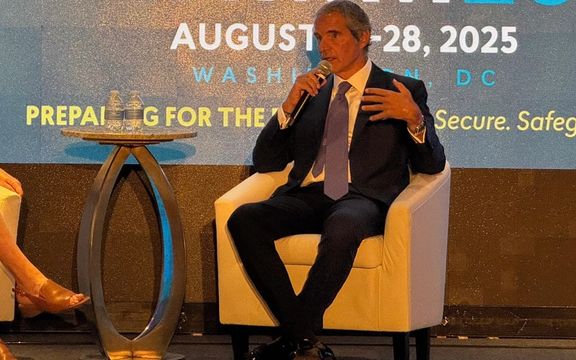
The UN nuclear watchdog’s inspectors have returned to Iran after their expulsion during a brief war with Israel and the US, IAEA chief Rafael Grossi said Tuesday, amid reports he has been placed under 24/7 protection following Iran's threat to his life.
"Now the first team of IAEA inspectors is back in Iran, and we are about to restart," International Atomic Energy Agency (IAEA) director general Grossi told Fox News in an interview.
Grossi, who was in Washington DC for the annual meeting of the Institute of Nuclear Materials Management, stopped short of saying there was an agreement or timeline for them to resume their work.
"When it comes to Iran, as you know, there are many facilities. Some were attacked, some were not. So we are discussing what kind of modalities, practical modalities, can be implemented in order to facilitate the restart of our work there."
Resuming full cooperation with the IAEA is one of the conditions three European countries - Germany, Britain and France - have put forward to Iran as a deadline for their triggering of UN sanctions at the end of August looms.
Under UN Security Council Resolution 2231, all sanctions lifted under a 2015 nuclear deal could automatically be reimposed if one party accuses Iran of non-compliance.
Tehran argues that the European countries no longer have legal standing to trigger the measure and has rejected the legitimacy of such a move.
"The reconstruction of (US-Iran) dialogue, conversation is more difficult, but it's not impossible. It's not at all impossible," Grossi added.
"Our work, the work of the inspectors, is indispensable, because without us in there checking what is going on, you cannot enter any serious negotiation without knowing what is really happening in countries."
Hardline opposition to IAEA work
The Iranian parliament's National Security and Foreign Policy Commission issued a statement on Tuesday expressing distrust of the IAEA ahead of the inspectors' return.
Iran would demand conditions such as “full respect for the national sovereignty and territorial integrity of the Islamic Republic of Iran” in order to cooperate with the agency in any form, the statement asserted.
Iran’s Foreign Minister said earlier this month that the IAEA must clarify how it would go about inspecting nuclear facilities bombed by Israel and the United States in June.
Following US strikes on Iranian nuclear sites on June 22, Iran passed a law suspending cooperation with the IAEA under its safeguards agreement unless its security demands are met.
Grossi gets 24/7 protect over Iran threat
Grossi has been under round-the-clock protection in recent weeks following a specific Iranian threat, The Wall Street Journal reported on Tuesday citing informed sources.
"The elite unit of Austria’s security services is protecting Grossi after the country’s intelligence agency received information of a threat to the International Atomic Energy Agency chief from a third party," the report said citing one source.
In July, deputy head of Iran’s judiciary said the country may try Grossi in absentia over his alleged role in enabling attacks on the country’s nuclear facilities.
A hardline Iranian newspaper even called for Grossi’s arrest and execution, accusing him of acting as an Israeli agent.
Britain, France and Germany condemned those threats at the time and expressed full support for Grossi and the IAEA in fulfilling its mandate.

An Iranian tycoon convicted of money laundering and embezzlement has returned to the oil business, Iranian news outlets reported, just as looming sanctions may soon force Iran to devise new means to avoid international scrutiny over its economy.
Iranian media reported Tuesday that Babak Zanjani has been allocated oil cargoes for export, using a cryptocurrency as collateral, even though the Central Bank of Iran has already declared the cryptocurrency to have no legal validity, economic value or financial backing.
The transaction was carried out through Naftiran Intertrade Company (NICO), a subsidiary of Iran’s Ministry of Petroleum, Eghtesad Online reported.
“NICO has transferred millions of barrels of oil to Babak Zanjani, while Zanjani not only has a huge debt to the government, but has also not repaid a large part of his past debts,” the report added.
Iran’s Ministry of Petroleum and NICO accepted Zanjani’s “invalid cryptocurrency” worth an estimated $300 million as collateral, ILNA news agency reported.
Iran's resort to Zanjani comes as the heavily-sanctioned country's crude oil exports dropped to about 1.2 million barrels per day in the first half of August, according to a report by Vortexa Energy Analysis Company.
Zanjani’s rise and fall remain among the most contentious episodes in Iran’s economic history. His net worth was once valued at $13.5 billion and he was considered a central figure in circumventing sanctions under President Mahmoud Ahmadinejad (2005–2013).
His networks laundered billions through complex schemes spanning Turkey, Indonesia and Central Asia.
Arrested in 2013, Zanjani was convicted of embezzling $1.9 billion in oil revenues. He was initially sentenced to death, later commuted to 20 years in prison.
Sanctions coming
“With the snapback mechanism looming, the Islamic Republic has brought back the very person with expertise and a complex network in this field,” Atta Hosseinian, a Berlin-based economic journalist specializing in energy, told Iran International.
Britain, France and Germany have threatened to trigger the so-called snapback mechanism of a 2015 Iran nuclear deal triggering UN sanctions if Iran doesn't make diplomatic concession's by month's end.
Reports in Iranian media have raised concerns about Zanjani’s return to business, questioning how someone with his history can be rehabilitated.
“It can be said Zanjani has returned by order from the top. This does not mean that supervisory and responsible institutions were unaware or uninformed. He has received and will receive a large volume of oil,” Hosseinian added.
On August 11, Iran’s Ministry of Intelligence issued confidential guidance warning ministries and major companies to prepare for the likely return of punitive UN sanctions.
The snapback mechanism, part of UN Security Council Resolution 2231 — which endorsed the 2015 Joint Comprehensive Plan of Action (JCPOA) — allows any party to the accord to accuse Iran of non-compliance.
If no resolution is reached within 30 days, all previous UN sanctions would automatically resume, including arms embargoes, cargo inspections, and missile restrictions.
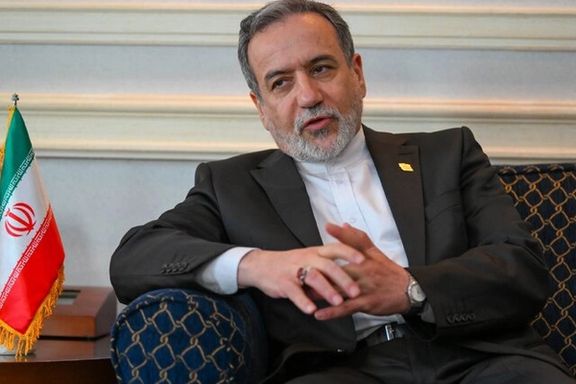
Iran’s foreign minister said on Tuesday that Tehran was ready to resume indirect negotiations with the United States over its nuclear program if Washington guarantees the military option is off the table.
“We are prepared to engage in indirect negotiations with the United States, provided the Americans assure us that they will not launch any military aggression during the negotiations,” Abbas Araghchi said in an interview with Asharq Al-Awsat published on Tuesday.
“We never left the negotiating table at any time. We were at the heart of the negotiations when Israel launched an attack against us and the United States joined in,” Araghchi added.
The Trump administration had set a 60-day deadline to secure a nuclear agreement with Iran. On day 61, with four rounds of negotiations completed and a fifth looming, Israel launched a surprise military attack on Iran on June 13.
The United States joined the campaign on June 22, striking three major nuclear sites in Isfahan, Natanz and Fordow.
The military campaign, dubbed Operation Midnight Hammer, involved B-2 stealth bombers armed with 30,000-pound Massive Ordnance Penetrators (MOPs) so-called bunker buster bombs designed to destroy fortified underground facilities.
Trump praised the precision strikes, saying Iran’s nuclear facilities targeted in the attacks were “totally obliterated.”
Araghchi warned: “If they believe that what they have been unable to achieve through military attacks can be accomplished through negotiations, then these negotiations will not take place.”
The United States has demanded that Iran halt all uranium enrichment activities. Tehran insists that, under the Non-Proliferation Treaty (NPT), it retains the right to pursue enrichment.
In July, Trump said the United States was in no hurry to enter talks with Iran due to the effectiveness of the strikes.
France, Germany and the United Kingdom are pressuring Iran to resume talks with the US and resolve disputes over Tehran's nuclear program, including full cooperation with the International Atomic Energy Agency (IAEA).
The most recent round of negotiations between Iran and the three European countries concluded in Geneva on Tuesday, with no concrete outcome announced.
Iran’s Supreme Leader Ali Khamenei on Sunday rejected calls by Tehran moderates for direct negotiations with the United States, insisting that Washington’s hostility cannot be resolved through talks.
“The embassy of the Islamic Republic of Iran in London expresses deep concern about the repeated publication of biased and unfounded reports on Iran by the Daily Telegraph,” the mission said in a statement carried by IRNA.
“These articles, based on vague and unreliable sources, lack credibility and present a distorted and misleading picture of realities in Iran.”
The Telegraph reported on Sunday that Iranian officials were considering reducing enrichment from 60% to 20% under the guidance of Ali Larijani, the country’s new security chief, in order to avert further Israeli and US airstrikes and avoid the reimposition of UN sanctions.
Citing unnamed officials, the paper said Larijani was trying to convince Iran’s leadership that lowering enrichment levels could ease external pressure.
The embassy dismissed the report. “These unfounded claims are categorically rejected,” it said.
Foreign ministry spokesman Esmail Baghaei had earlier criticized the newspaper’s reporting practices, saying that the outlet had previously attributed news to “nonexistent informed sources” when producing stories on Iran.
The report coincided with Supreme Leader Ali Khamenei’s rejection of proposals from within Tehran’s reformists camp for direct talks with Washington.
Meanwhile, the United Kingdom, France, and Germany have warned Iran they will trigger a snapback of UN sanctions by the end of August unless Tehran reenters negotiations and delivers concrete results on its nuclear program.
The snapback is part of UN Security Council Resolution 2231, which endorsed the 2015 nuclear deal known as the Joint Comprehensive Plan of Action (JCPOA).
Under Resolution 2231, any party to the accord can file a complaint accusing Iran of non-compliance. If no agreement is reached within 30 days to maintain sanctions relief, all previous UN sanctions automatically return, including arms embargoes, cargo inspections, and missile restrictions.